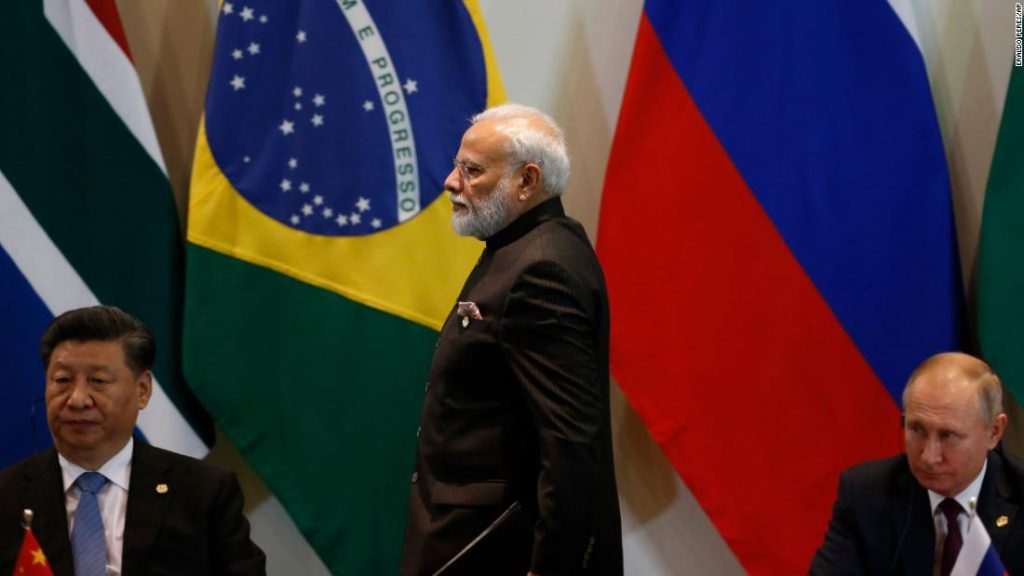Analysis: Russia’s attack on Ukraine reveals fault lines in Asia

But Russian strongman Vladimir Putin’s unprovoked Russia’s invasion of Ukraine has united Western allies like no other issue in recent years and China’s tacit support has not gone unnoticed. Some analysts have pointed to parallels between Russia’s designs on Ukraine and fears over the future of Taiwan — a self-governing island democracy that China’s Communist Party claims as its own and has not ruled out taking by force.”Ukraine is a wake-up call for Europe and North America and the other democracies,” said Steve Tsang, director of SOAS China Institute at the University of London. “You will suddenly have countries in Europe and elsewhere realizing that they have to prepare for eventualities that since the end of the Cold War, over 30 years, we have not thought necessary.””In that context, the assertiveness of China and the Chinese declared ambitions over Taiwan will get a lot more countries more worried,” he said. India and RussiaThere’s an elephant in the room when it comes to India’s relationship with Russia: China.India, the world’s biggest democracy, has looked to counter China’s growing influence in the Asia-Pacific region. One sign of that is India’s role in the Quad — an informal security grouping with the United States, Japan and Australia that’s recently become more active. And it has a defense relationship with Russia — estimates range upwards of 50% for how much of India’s military equipment came from Russia. That equipment is vital given India’s ongoing tensions at the border with China, which could escalate again. India also has a fraught relationship with its neighbor Pakistan, which flared into crisis at their disputed Kashmir border region in 2019.Meanwhile, India inked a $5 billion weapons deal with Russia in 2018 for an air defense missile system, though well aware of the sanctions America could impose through the US side’s Counter America’s Adversaries Through Sanctions Act (CAATSA).India isn’t looking at the situation in Ukraine in terms of their relationship with that country — it’s thinking about the dangers in its own backyard, Happymon Jacob, an associate professor of diplomacy and disarmament at the Jawaharlal Nehru University in New Delhi, said.”This isn’t about going against the West or supporting Russia,” Jacob said. “(India’s government) hasn’t explicitly supported Russia, but they have to take a more careful, nuanced approach.”So far, India has tried to play both sides — Modi has spoken with both Zelensky and Putin, and has pledged humanitarian aid for Ukraine. Modi hasn’t explicitly condemned Russia’s attacks — he’s called for “an immediate cessation of violence” and “concerted efforts from all sides” to negotiate, according to a read-out of his February 24 call with Putin. Russia and India have a long history of friendly relations, which stretch back to the Soviet era when the USSR helped India win its 1971 war with Pakistan. There’s also the relationship between Putin and Modi, who was one of only two world leaders Putin traveled to see last year, for a visit to New Delhi in December. “India needs Russia to stand up to China,” said Harsh V. Pant, a professor in international relations at King’s College London and head of the Strategic Studies Program at the Observer Research Foundation in New Delhi. “It will have to balance its historic ties with Russia with its burgeoning ties with the West.”The US’ defense trade with India has risen from nearly zero in 2008 to more than $20 billion in 2020. And as Russia’s war rages on, Putin may have less in the way of defense support to offer countries like India “what with the incredible rate of attrition in Ukraine,” said Ian Hall, a professor of international relations at Griffith University. And there’s domestic pressure too — after an Indian student was killed during Russia’s shelling of Kharkiv last week while buying groceries, there’s been growing calls within India to help evacuate the hundreds of other Indian students stuck in the northeastern city of Sumy, which has come under heavy bombardment in recent days. Self interest Even before Russia invaded Ukraine, this tangle of relationships was sometimes fraught. Now with widespread condemnation against its actions, Russia is likely to be considered a pariah state in the West. And that could make its relationships with countries like China and India even more important. “In (Putin’s) first stint as President, he put a lot of emphasis in rekindling old Soviet ties with Asian partners,” said Hervé Lemahieu, director of research at the Australia-based think tank the Lowy Institute. “He does have ballast in Asia … and, as we’ve seen, he has more than just China to rely on.” Both China and India are maintaining the friendship out of self-interest — but for very different reasons. China has a “clear interest” in making sure people like Putin stay in power, says SOAS’s Tsang. “They share two primary strategic interests: one is to take the American global leadership down a notch or two. The second is to make the world safe for authoritarianism,” Tsang said. But Beijing’s support is conditional — if the Russians are unsuccessful to the point that they can’t aid the countries’ shared aims, China could recalibrate its support, he said. Elsewhere in Asia, US allies South Korea and Japan have come out in condemnation of Russia. Singapore has also levied sanctions against Russia. And while the Association of Southeast Asian Nations (ASEAN) issued a statement last week that did not condemn or refer to Russia’s actions as an invasion, eight of the 10 members voted in favor of the UN General Assembly resolution calling on Russia to immediately cease its use of force in Ukraine. Only Laos and Vietnam abstained.As for democratic India, security and development concerns may come first. “In Asia, the fundamental challenge for most is China’s rising power, China’s huge force,” Manoj Kewalramani, chair of the Indo-Pacific Research Program at the Takshashila Institution in Bangalore, said. “This binary of democracy and autocrats is problematic — the world is much more complicated.”



